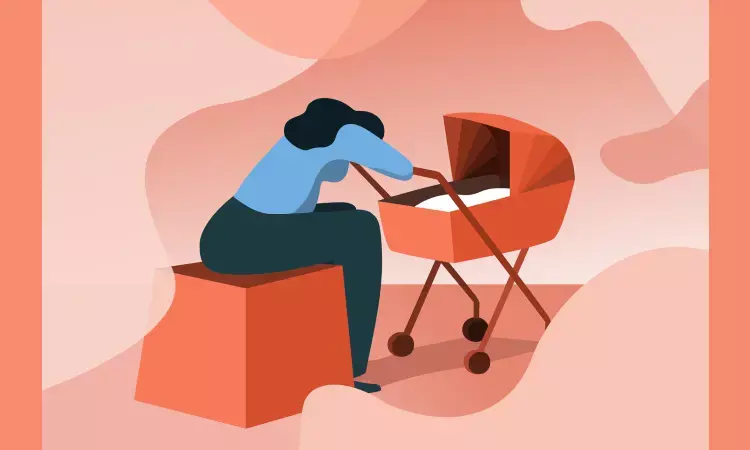- Home
- Medical news & Guidelines
- Anesthesiology
- Cardiology and CTVS
- Critical Care
- Dentistry
- Dermatology
- Diabetes and Endocrinology
- ENT
- Gastroenterology
- Medicine
- Nephrology
- Neurology
- Obstretics-Gynaecology
- Oncology
- Ophthalmology
- Orthopaedics
- Pediatrics-Neonatology
- Psychiatry
- Pulmonology
- Radiology
- Surgery
- Urology
- Laboratory Medicine
- Diet
- Nursing
- Paramedical
- Physiotherapy
- Health news
- Fact Check
- Bone Health Fact Check
- Brain Health Fact Check
- Cancer Related Fact Check
- Child Care Fact Check
- Dental and oral health fact check
- Diabetes and metabolic health fact check
- Diet and Nutrition Fact Check
- Eye and ENT Care Fact Check
- Fitness fact check
- Gut health fact check
- Heart health fact check
- Kidney health fact check
- Medical education fact check
- Men's health fact check
- Respiratory fact check
- Skin and hair care fact check
- Vaccine and Immunization fact check
- Women's health fact check
- AYUSH
- State News
- Andaman and Nicobar Islands
- Andhra Pradesh
- Arunachal Pradesh
- Assam
- Bihar
- Chandigarh
- Chattisgarh
- Dadra and Nagar Haveli
- Daman and Diu
- Delhi
- Goa
- Gujarat
- Haryana
- Himachal Pradesh
- Jammu & Kashmir
- Jharkhand
- Karnataka
- Kerala
- Ladakh
- Lakshadweep
- Madhya Pradesh
- Maharashtra
- Manipur
- Meghalaya
- Mizoram
- Nagaland
- Odisha
- Puducherry
- Punjab
- Rajasthan
- Sikkim
- Tamil Nadu
- Telangana
- Tripura
- Uttar Pradesh
- Uttrakhand
- West Bengal
- Medical Education
- Industry
Postpartum depression may persist beyond three years after giving birth

A National Institutes of Health study of 5,000 women has found that approximately 1 in 4 experienced high levels of depressive symptoms at some point in the three years after giving birth. The rest of the women experienced low levels of depression throughout the three-year span. The study was conducted by researchers at NIH's Eunice Kennedy Shriver National Institute of Child Health and Human Development (NICHD). It appears in the journal Pediatrics.
The American Academy of Pediatrics recommends that pediatricians screen mothers for postpartum depression at well-child visits at one, two, four and six months after childbirth. Researchers identified four trajectories of postpartum depressive symptoms and the factors that may increase a woman's risk for elevated symptoms. The findings suggest that extending screening for postpartum depressive symptoms for at least two years after childbirth may be beneficial, the authors write.
"Our study indicates that six months may not be long enough to gauge depressive symptoms," said Diane Putnick, Ph.D., the primary author and a staff scientist in the NICHD Epidemiology Branch. "These long-term data are key to improving our understanding of mom's mental health, which we know is critical to her child's well-being and development."
The researchers analyzed data from the Upstate KIDS study, which included babies born between 2008 and 2010 from 57 counties in New York State. The study followed 5,000 women for three years after their children were born.
Researchers assessed women's symptoms through a brief, five-item depression screening questionnaire, but the study did not clinically diagnose depression in the women. Women with underlying conditions, such as mood disorders and/or gestational diabetes, were more likely to have higher levels of depressive symptoms that persisted throughout the study period.
The researchers noted that the study participants were primarily white, non-Hispanic women. Future studies should include a more diverse, broad population to provide more inclusive data on postpartum depression, Dr. Putnick said.
Hina Zahid Joined Medical Dialogue in 2017 with a passion to work as a Reporter. She coordinates with various national and international journals and association and covers all the stories related to Medical guidelines, Medical Journals, rare medical surgeries as well as all the updates in the medical field. Email: editorial@medicaldialogues.in. Contact no. 011-43720751
Dr Kamal Kant Kohli-MBBS, DTCD- a chest specialist with more than 30 years of practice and a flair for writing clinical articles, Dr Kamal Kant Kohli joined Medical Dialogues as a Chief Editor of Medical News. Besides writing articles, as an editor, he proofreads and verifies all the medical content published on Medical Dialogues including those coming from journals, studies,medical conferences,guidelines etc. Email: drkohli@medicaldialogues.in. Contact no. 011-43720751


